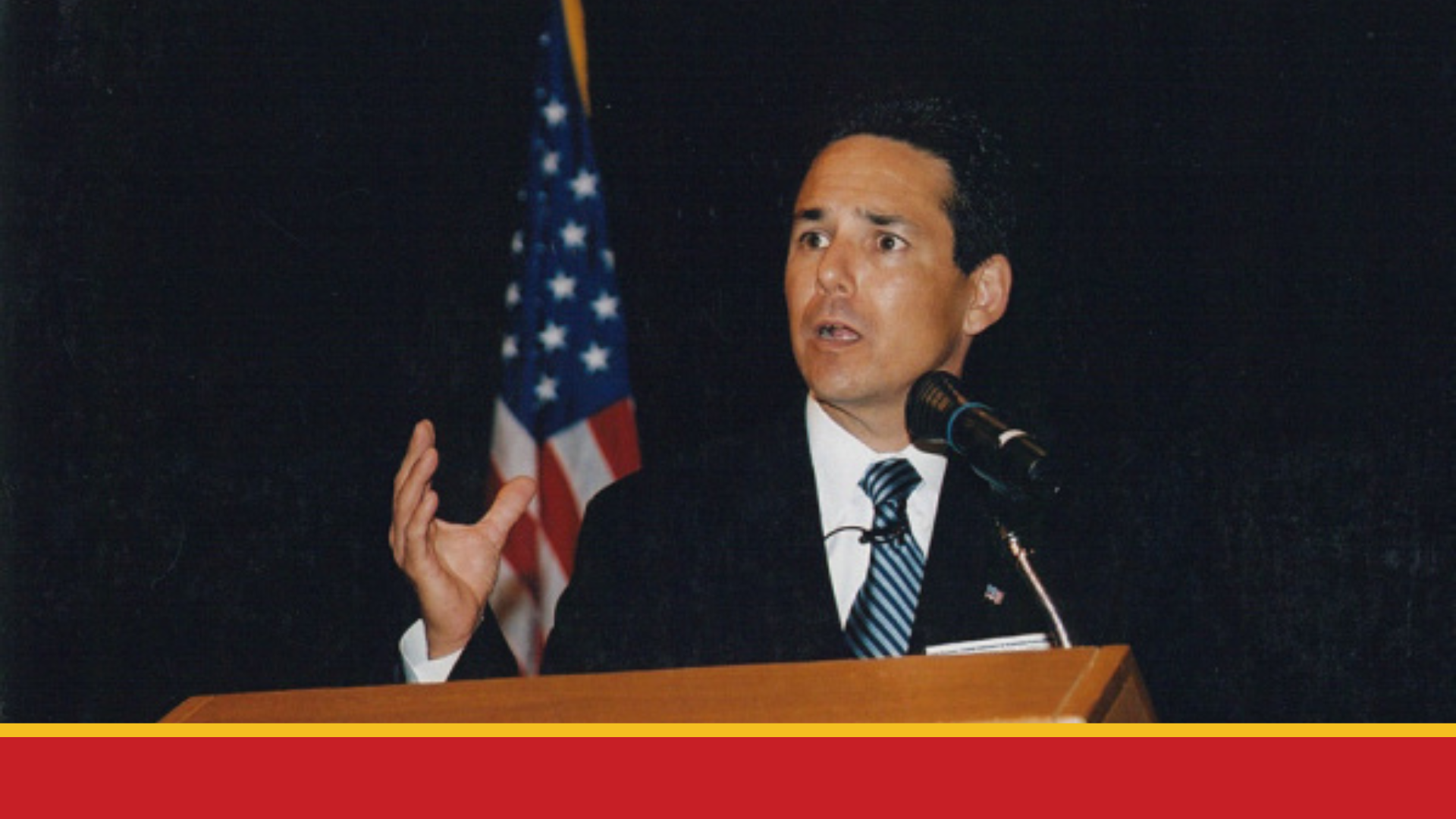 How an American tragedy affected government procurement policy and, in turn, those relying on government services.
How an American tragedy affected government procurement policy and, in turn, those relying on government services.
In 2001, before Fred Armendariz was ProcureAmerica’s CEO, he was appointed by President George W. Bush to help lead the United States Small Business Administration (SBA). Coming to government service from a private sector background as CEO of a technology firm in California, Fred knew that working in the nation’s capital would be exciting and transformative, but he could never have anticipated that the single most impactful event of his career would take place during his very first week on the job.
On September 11, 2001, one week into his new role, Fred was in the Capitol House dining room for his first scheduled meeting of the day: discussing procurement policy with the Congressional Black Caucus. Suddenly, the Capitol was evacuated, and it was apparent that it was not a drill. From that moment forward, America would never be quite the same. “It was a scary day that has been with me ever since,” said Fred, “and when I think back, it is surreal to think that just minutes later United Flight 93 would be downed by its passengers in Pennsylvania. According to the intelligence community, the plane was headed directly to the Capitol where I was having breakfast. I owe my life to those brave souls.”
In a matter of days, Fred was dispatched to New York City to help open the SBA’s disaster relief office in Manhattan and was there to see first-hand the direct impact that government services can have on the American people.
Within his responsibilities as a Presidential Appointee, Fred also served as an Executive Member of the Federal Procurement Council, Ex-Officio member of the President’s Commission on Educational Excellence for Hispanic Americans and was a contributor to the President’s Management Agenda (PMA). Each President creates a PMA to map out their vision for managing government in a more impactful and efficient manner. Many components of President Bush’s PMA involved leveraging private sector best practices for government application.
Fred’s PMA work involved collaborating with Senior White House staff in the outline of strategy, mission deliverables, design, and messaging of the President’s vision. During a series of private-sector roundtables held to assist with government policy formation, Fred learned first-hand how Fortune 100 leaders made decisions when it came to procurement; they used Business Intelligence on the front end to guide the process, and then designed their procurement models around the insight they were able to gather from industry experts. Conversely, the government used the procurement process and internal staff to set the course of action. In other words, the private sector was proactive in obtaining and leveraging information, while the government was typically operating in a reactive manner.
Business Intelligence is defined as the use of historical, current, and predictive information by industry specific experts to identify, design and implement operational efficiency strategies. Coming from a private sector background, Fred understood the value of data and intelligence and how information leveled the playing field with suppliers. Proper utilization of Business Intelligence provides the delivery of best-in-class products, highest service levels and lowest available pricing. “Applying business intelligence is like taking a test with an expert helping you with each question,” said Fred. “You will get an A!”
After four years, Fred left the Bush Administration to return to California and the private sector. It was not long before he was called again in 2005 to serve in the Schwarzenegger Administration as Chairman for the California Alcohol Beverage Control. As agency head, Fred saw lots of opportunities to bring about operational and business efficiency. “From my experience, I knew that Business Intelligence for government was an incredible tool and was always part of my field of vision when it came to management best practices,” said Fred. “But there wasn’t a firm that delivered these services in a cost-effective manner to local and state government.”
Thus, in 2009, Fred decided to start a firm to support government agencies of all sizes—and ProcureAmerica was born. The company now actively services well over 100 government agencies including states, counties, cities, school and water districts, JPAs and special districts. ProcureAmerica also has strategic partnerships with the California State Association of Counties, Association of California Water Agencies, the League of California Cities and many others.
Additionally, ProcureAmerica has a healthcare-specific division that services public sector healthcare organizations including UCSD Health, Contra Costa County Health Services, El Centro Regional Medical Center and more. During the COVID-19 pandemic, the ProcureAmerica team has been called upon to deliver cost containment services in an emergency type environment and they have been honored to assist. Fred’s vision of government agencies helping the American people in the most efficient and effective way possible came to life and the pandemic has proven to be another milestone in his public service career.
“September 11 is a hallowed day for me,” Fred reflects. “Now, 20 years later, we must thank those who have made great sacrifices and suffered tragedy in order for our Country to move forward and prosper. I view my work now as an extension of my public service in that every dollar saved, every resource preserved, can be redirected to the citizens served!”
About ProcureAmerica
ProcureAmerica is the nation’s leading business intelligence company supporting local government and the healthcare industry. Their services support and deliver operational efficiency, fiscal responsibility, expense transparency and material net cost reduction. ProcureAmerica has industry specific practice groups in six specific expense categories: Utilities, Waste & Recycling, Telecommunications, Print Management, Technology Optimization, and Treasury. Each review team is staffed with highly skilled experts that come directly from the industry in which they practice.





